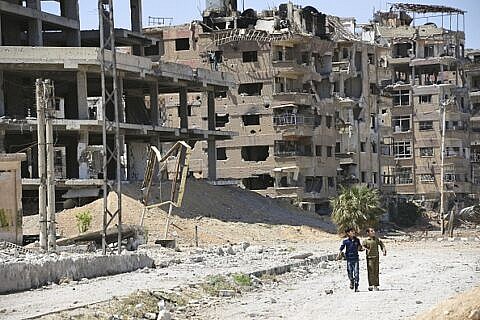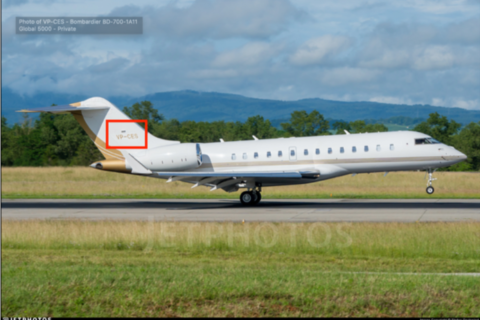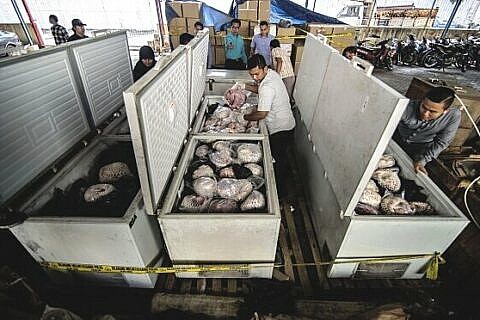The Henchman’s Dilemmas
Samer Foz is a key Assad regime henchman designated by the United States along with his siblings and ten of their businesses in Syria, Lebanon, and the UAE. C4ADS, using publicly-available information (PAI), identified 18 unsanctioned companies that are likely linked to Samer Foz in Turkey, Lebanon, and the UAE. They could enable the Foz network to continue its support for the Assad regime and profit despite US sanctions. They could also help the Foz siblings protect their assets from Assad’s regime and benefit from the Syrian reconstruction process.
The Henchman’s Dilemmas: The Logic of the Samer Foz Network #
Samer Foz is a busy guy – on a given day, you can find him providing material support to the Assad regime, bulldozing an opposition neighborhood to build luxury apartments, profiting from the Syrian Civil War, or funding a pro-regime paramilitary unit. The US sanctioned Samer Foz, his siblings Amer and Husen Foz, and ten of their businesses in Syria, Lebanon, and the UAE for these activities
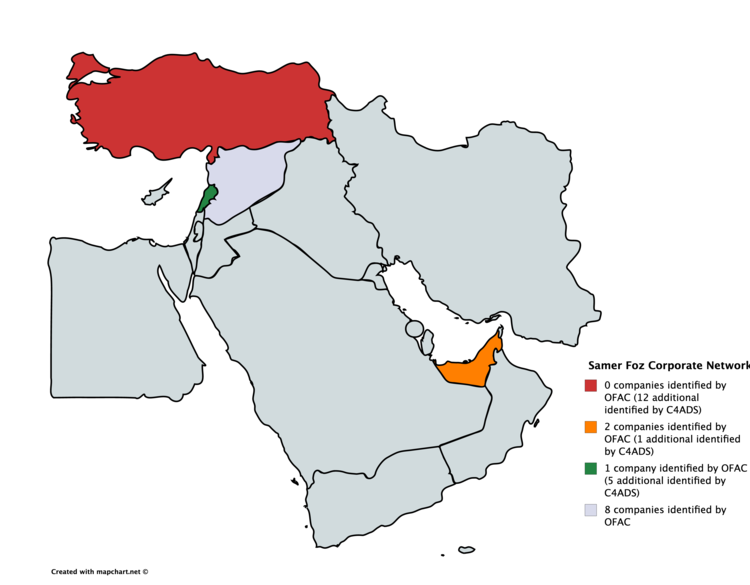
C4ADS is able to identify 18 unsanctioned companies that are likely linked to Samer Foz using the US Department of the Treasury’s Office of Foreign Assets Control (OFAC) designation and other publicly-available information (PAI). These companies are in Turkey, Lebanon, and the UAE. They could enable the Foz network to continue its support for the Assad regime and profit despite US sanctions. They could also help the Foz siblings protect their assets from Assad’s regime and benefit from the Syrian reconstruction process.
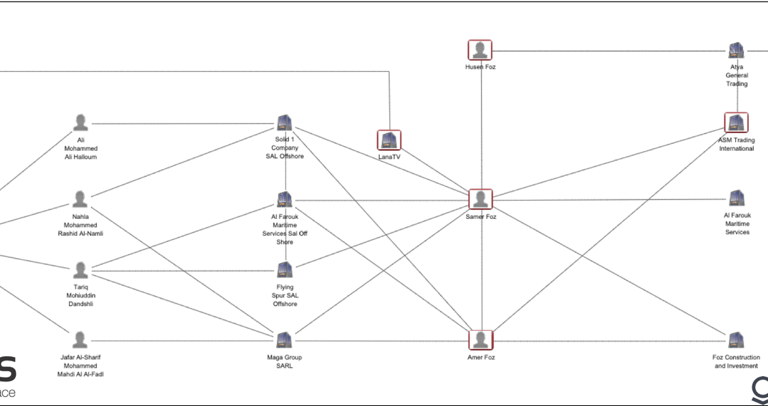
Offshore Companies: Evasion and Survival #
Samer Foz and his siblings face two dilemmas, both of which provide incentives for them to base operations and establish companies outside of Syria. The first is linked to operations: if they want to bring material into Syria to support Assad or otherwise profit from the war, sanctions on Syria make it difficult to conduct business on a transnational scale. Through companies in Lebanon, Turkey, and the UAE, the Foz network is able to import materials and then transport them to Syria. This would be a relatively simple way to attempt sanctions evasion.
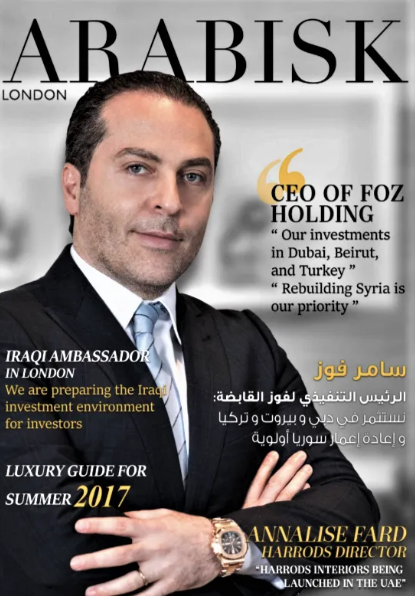
The second dilemma is fundamentally political: it’s about surviving in a dictatorship. War-torn Syria doesn’t have much in the way of rule of law. Businesses, including those war zones and fragile states, need the stability that impartial courts and other legal institutions provide to legally protect themselves from things like arbitrary seizure of private property or disputes with rival business owners. The absence of such stability has played out in elite politics in Syria over the course of the war: the Assad regime reportedly seized the Syrian assets of formerly prominent regime-linked businessman Imad Ghreiwati. Mr. Ghreiwati, as well as most of his family, was reportedly put on a blacklist of traitors to the regime, though no such blacklist was officially published. But what Ghreiwati lost, others appear to have gained: a Youtube video posted by an account affiliated the US-sanctioned and Foz-owned Aman Holding indicates that Samer Foz received control over the Syrian Modern Cable Company (S.M.C), one of Ghreiwati’s companies, in the wake of Ghreiwati’s blacklisting. That video describes the importance of S.M.C to Syria. This and other reporting indicates Aman Holding now owns S.M.C.
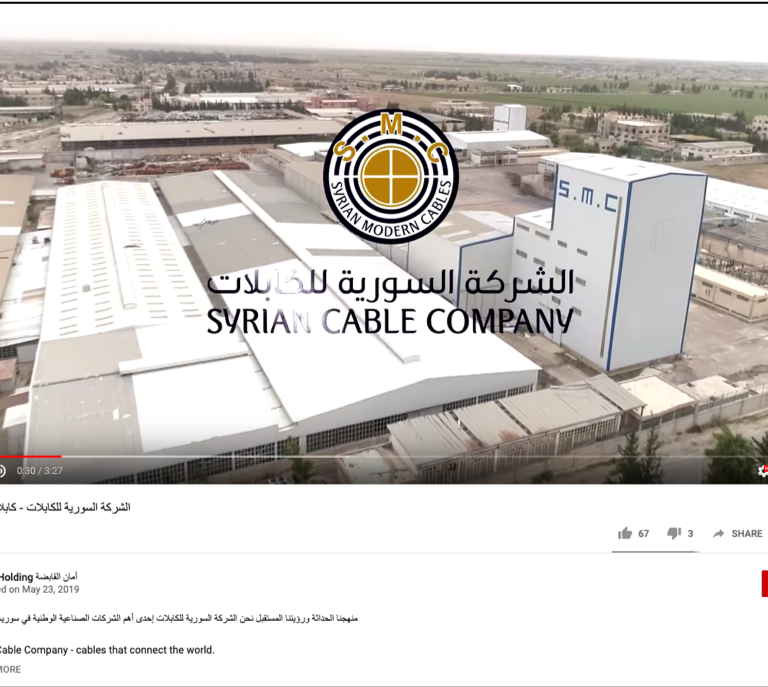
Despite apparently benefiting from Assad’s favoritism, alleged regime supporters like Samer Foz face a simple and enduring dilemma – what they earn, and what they receive through government largesse, can easily be taken away. However, Assad cannot as easily seize assets that are outside of Syria the way he could with Ghreiwati’s S.M.C. Establishing companies outside of Syria may be part of an insurance strategy designed to protect Foz’s apparent war profits from Assad.
Finding regime-aligned companies abroad can therefore serve two purposes: in addition to identifying the channels through which sanctionable trade flows, it can also serve to assess which jurisdictions facilitators feel comfortable in. Maintaining a presence in countries like Lebanon, Turkey, and the UAE may help an apparent Assad facilitator like Samer Foz resolve his dilemmas. They also offer avenues to launder illicit proceeds from the war and profit from Syrian reconstruction in the process.
Lebanon #
The search for unsanctioned companies potentially linked to the Foz siblings starts with the OFAC designation. The US sanction designation of Samer Foz included LanaTV, a Lebanese TV station. The US says Samer Foz owns or controls LanaTV and has used it to solicit investment in Syria. Starting from the designation of LanaTV, C4ADS is able to identify four unsanctioned companies which, according to corporate records from the Lebanese corporate registry included below, list a Syrian named “Samer Foz” as an owner, as well as a fifth Lebanese company that may be linked to the sanctioned LanaTV.
No legal entity named “LanaTV” appears in the Lebanese registry. LanaTV’s website, however, states that it was founded in March 2018 under the patronage of Al Minbar Productions. As of September 2019, all four of Al Minbar Productions’ corporate officers appeared as officers and/or shareholders on the registry entries of four companies that also listed a Syrian national named Samer Foz as an owner. Three are located in the same building in Beirut, and the fourth is nearby. An Amer Foz with Syrian citizenship is listed as an owner of three of these four as well. The shared location and ownership overlap indicate a degree of possible affiliation between these seemingly separate companies.
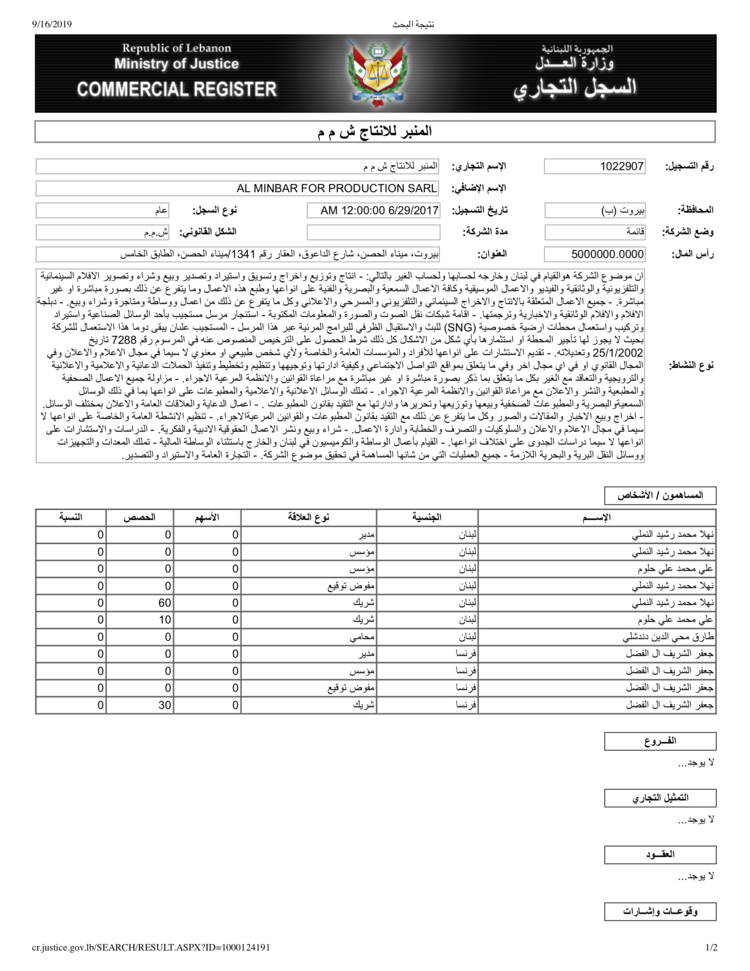
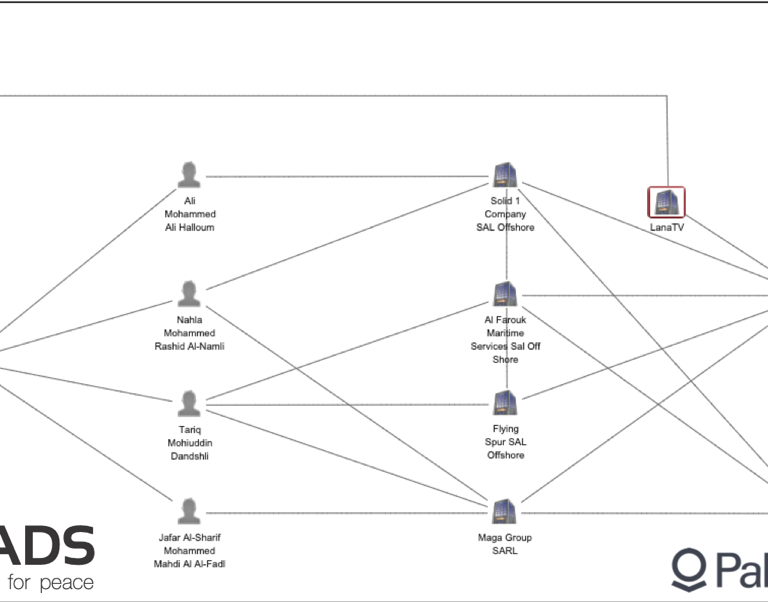
Corporate registry documents corresponding to the four companies declare them to be active in the maritime services, import/export, and media sectors. Three of the companies are listed as offshore companies. The designation “offshore company” refers to a legal entity type in Lebanon whose activities are limited by law to certain commercial spheres. These include negotiating and signing contracts for operations abroad, maritime transport operations, management of companies outside of Lebanon, and other activities. Offshore companies are often subsidiaries of a non-Lebanese company that are set up to facilitate the import of goods into Lebanon, often for re-export. Such a structure could be used by a Syrian company seeking to avoid scrutiny. According to OFAC, Lebanese offshore companies have previously been used in sanctions evasion schemes on behalf of Iran’s IRGC and Lebanese Hezbollah. Indeed, Samer Foz himself was originally sanctioned alongside several Lebanese offshore companies under his control.
If the four unsanctioned companies are in fact linked to the sanctioned Samer and Amer Foz, they may provide this network ways to evade sanctions and solicit investment for reconstruction. This would help the Foz siblings with the dilemma of getting materials to Syria, but it does not protect their gains from Syrian politics. To solve that problem, they appear to have established additional infrastructure in Turkey.
Turkey #
The OFAC designation states that Samer Foz and his sister Husen Foz have Turkish citizenship, in addition to citizenships in Syria and Saint Kitts and Nevis. By investigating Turkish corporate records, C4ADS has identified 12 companies in Turkey that are likely linked to Samer Foz either through an ownership role, or through a company likely managed by Husen Foz in Dubai. None of these companies are under US sanctions as of September 2019. These companies are reportedly active in construction and maritime services according to Turkish trade gazette records from 2019. They potentially offer Samer, Amer, and Husen Foz the ability to evade US sanctions, profit from Syria reconstruction, and offshore their assets.
An individual with Turkish citizenship named Samer Foz appears in the Turkish Registry as an owner of two companies: Foz Construction and Investment and Al Farouk Maritime Services. As in Lebanon, these companies shared the same address – this time in Istanbul’s Besiktas neighborhood address during 2015 and 2017. In another similarity to the Lebanese case, the registry also reported that an individual named Amer Foz with Turkish citizenship was a partial owner of one of these companies. The shared addresses of these companies and shared ownership by Samer Foz indicate they may have a relationship.
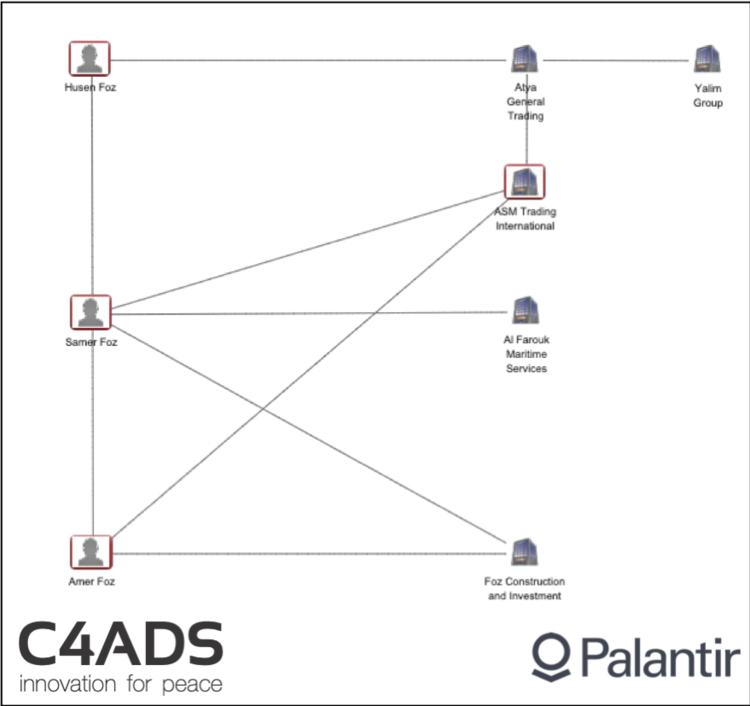

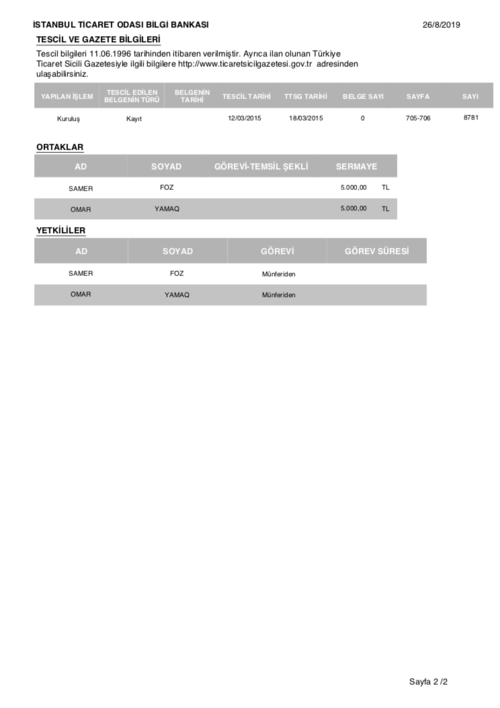
In addition to the ability of the Turkish companies to import materials that eventually may go to Syria, they would also offer the Foz network a way to hold assets outside of Syria. For instance, Foz Construction and Investment is in the construction sector – Samer Foz could use it to acquire real-estate holdings and other assets in Turkey to protect the family’s wealth if they fall afoul of Assad. The Assad regime can seize Syria-based Aman Holding without consequence but it cannot seize a company in Turkey the same way. These companies and assets potentially could launder the Foz family’s war profits as well, because there are no US sanctions on Foz companies in Turkey.
The links don’t end with Samer Foz himself – his sister Husen Foz appears to be connected to a web of Turkish companies through a UAE-based company, according to commercially available credit reports displayed below. A Husen Foz manages Atya General Trading, an unsanctioned company that shares a Dubai P.O. Box address with US-sanctioned (and Foz-owned) ASM International Trading, according to the credit reports. The fact that Atya General Trading and the Foz-linked and sanctioned ASM International Trading share an address is an indicator that the Husen Foz that manages Atya General Trading could be the OFAC-sanctioned individual.
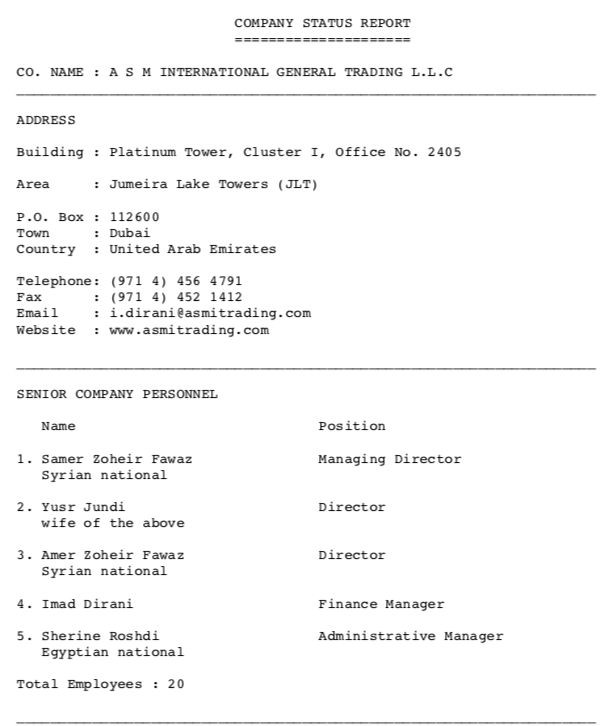
Atya General Trading is self-reported as being part of the Yalim Group of companies. Yalim Group’s website states that the group’s activities include, among other lines of business, the export of construction materials and equipment. Yalim Group’s ten companies in Turkey are unsanctioned and operate in construction, food imports, energy, transportation, mining, and medical sectors. These companies could offer the Foz network additional avenues to evade US sanctions and to offshore and launder profits from supporting Assad.
The Foz-linked construction companies in Turkey could also be part of the sibling’s plan to profit after the war. OFAC states the family is involved in the construction of Marota City, a luxury project in an area of Damascus that the regime emptied of its opposition residents. The US designation focused on this activity. The construction companies in Turkey would offer an easy explanation for the import of construction materials that end up in Syria. They also offer the chance to add Turkish-financed Syria reconstruction to the Foz portfolio. Given their apparent illicit war profits, they can probably afford to underprice legitimate competition for Turkish contracts. None of these construction companies are sanctioned, potentially offering the Foz family an avenue to continue profits beyond the war.
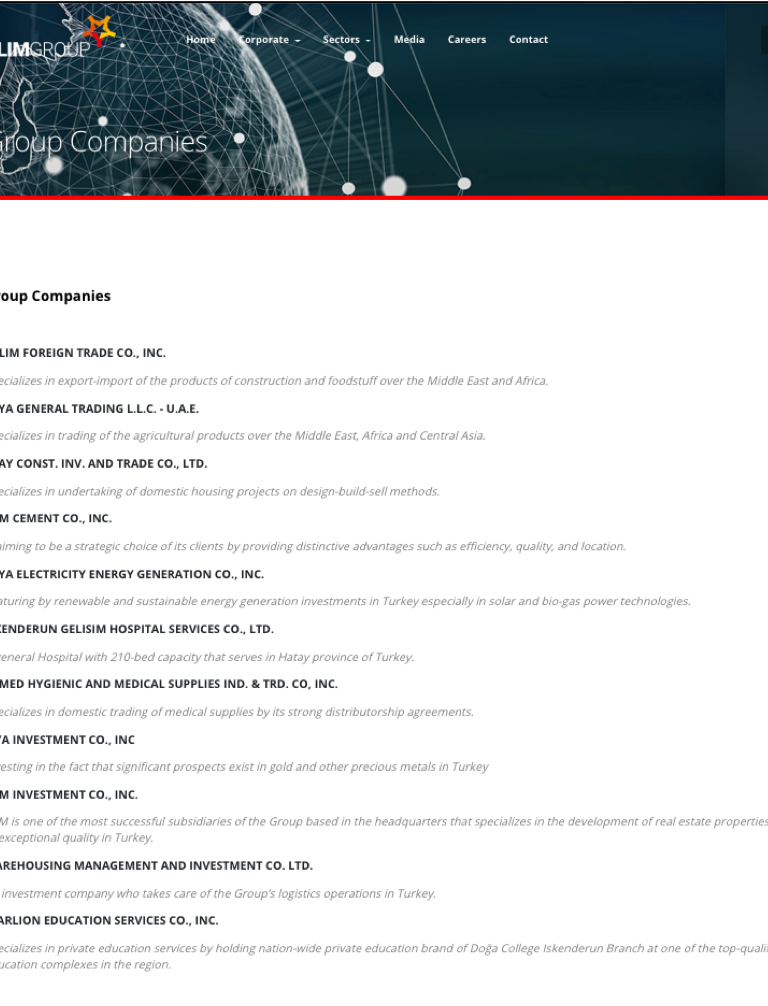
Catch Them If You Can #
While a great deal of the offshore commercial activity of an individual like Samer Foz may seem to be designed to evade US sanctions and international sanctions, this is a limited view of the complicated commercial logic underlying the activities of regime facilitators – they are at least as concerned about their long-term domestic survival as they are about supplying the war effort. Samer Foz and his siblings are likely linked to companies in multiple jurisdictions outside of Syria to evade sanctions, protect their assets from Assad, and launder their profits through normal activities like construction. Using research based on publicly available information (PAI), C4ADS was able to identify 18 unsanctioned companies that are likely linked to the sanctioned Foz siblings and US-sanctioned companies. However, there may be more unsanctioned companies linked to the Foz siblings, including those not in their names, in various other jurisdictions.
Dancing on this tightrope between supplying sanctioned regimes and ensuring one’s own survival is a fundamental part of the henchman’s dilemma – the same strategies that have enabled Samer Foz to survive could be used by other facilitators. C4ADS’ investigation demonstrates that the use of PAI can reveal the regional networks of Syrian war profiteers to aid the enforcement of western sanctions regimes and increase costs to these illicit networks.
